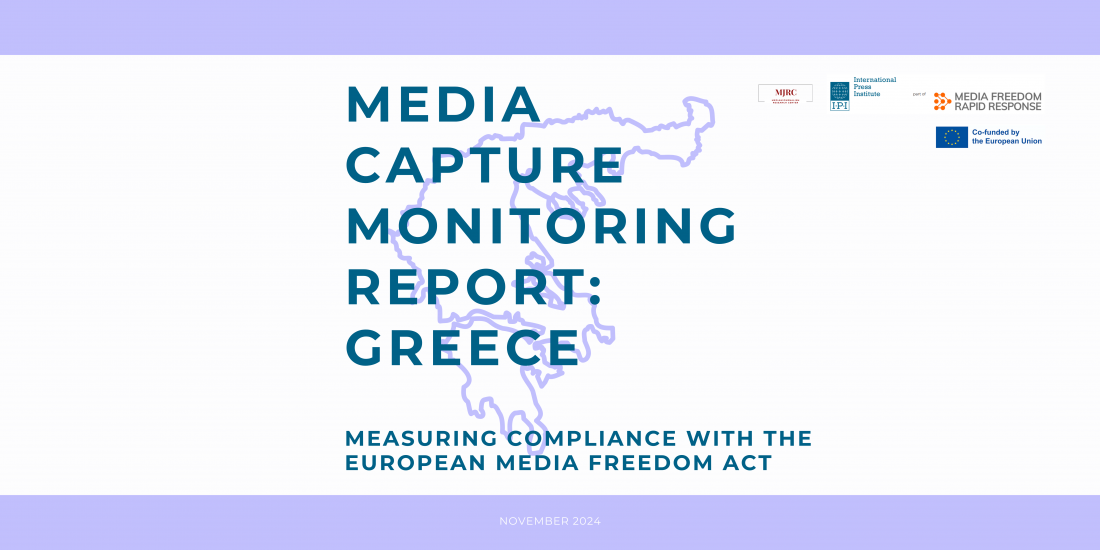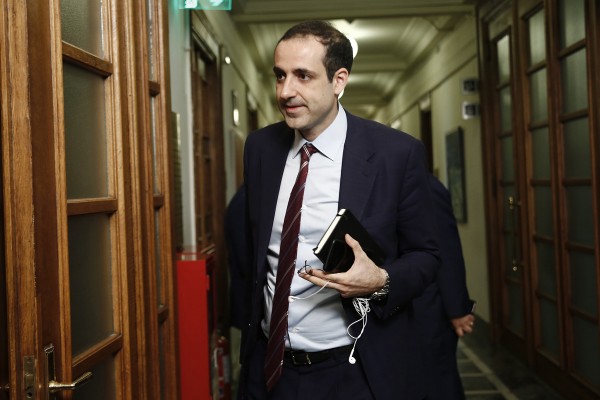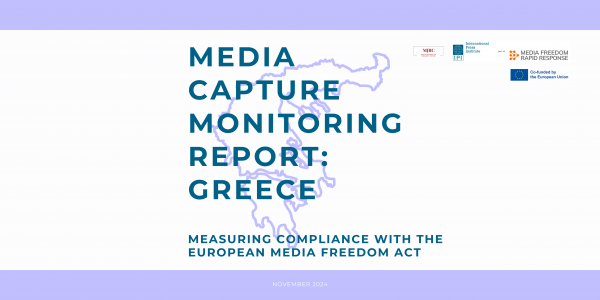The International Press Institute (IPI) and the Media and Journalism Research Center (MJRC) have released a new Media Capture Monitoring Report on Greece, which assesses the extent of media capture and evaluates regulatory compliance with standards set by the European Media Freedom Act (EMFA).
The Greek media landscape is characterized by a high concentration of media in the hands of wealthy families with close political ties, particularly the New Democracy party. As a result, despite an abundance of media outlets, effective pluralism remains weak. The report also focuses on the vulnerability of Greece’s media regulator and public service media to political interference.
This is the fourth in a series of seven country reports to be published in 2024.
The European Media Freedom Act (EMFA), effective as of May 2024, mandates Member States to reform national media laws to combat media capture. Required reforms include ensuring media regulator independence, promoting transparency in media ownership, safeguarding media pluralism, and restricting state influence on editorial policies.
The report underscores how Greece’s media environment remains heavily influenced by vested interests. Although legally independent, the National Council for Radio and Television (NCRTV) faces considerable political pressure. Despite new rules introduced following the ‘Petsas list’ scandal, when publicly funded Covid-19 health messages were directed away from critical media, t state advertising use still lacks transparency and remains vulnerable to abuse. Media concentration and a lack of ownership transparency exacerbate media pluralism issues, making Greece particularly vulnerable to media capture.
This report covers seven EU countries – Bulgaria, Finland, Greece, Hungary, Poland, Romania, and Slovakia – as part of a pilot initiative to create an annual report series that tracks compliance and progress in the years ahead. These case studies aim to support media rights organizations, policymakers, and advocacy groups in monitoring advancements and advocating for legislative reform.
For more information or media inquiries, please contact:
- Oliver Money-Kyrle, Head of Europe Advocacy and Programmes – IPI, omoneykyrle@ipi.media
- Marius Dragomir, Project Editor – MJRC, mdragomir@journalismresearch.org
The project is a part of the Media Freedom Rapid Response, a Europe-wide mechanism which tracks, monitors and responds to violations of press and media freedom in EU Member States and Candidate Countries. The project is co-funded by the European Commission.




